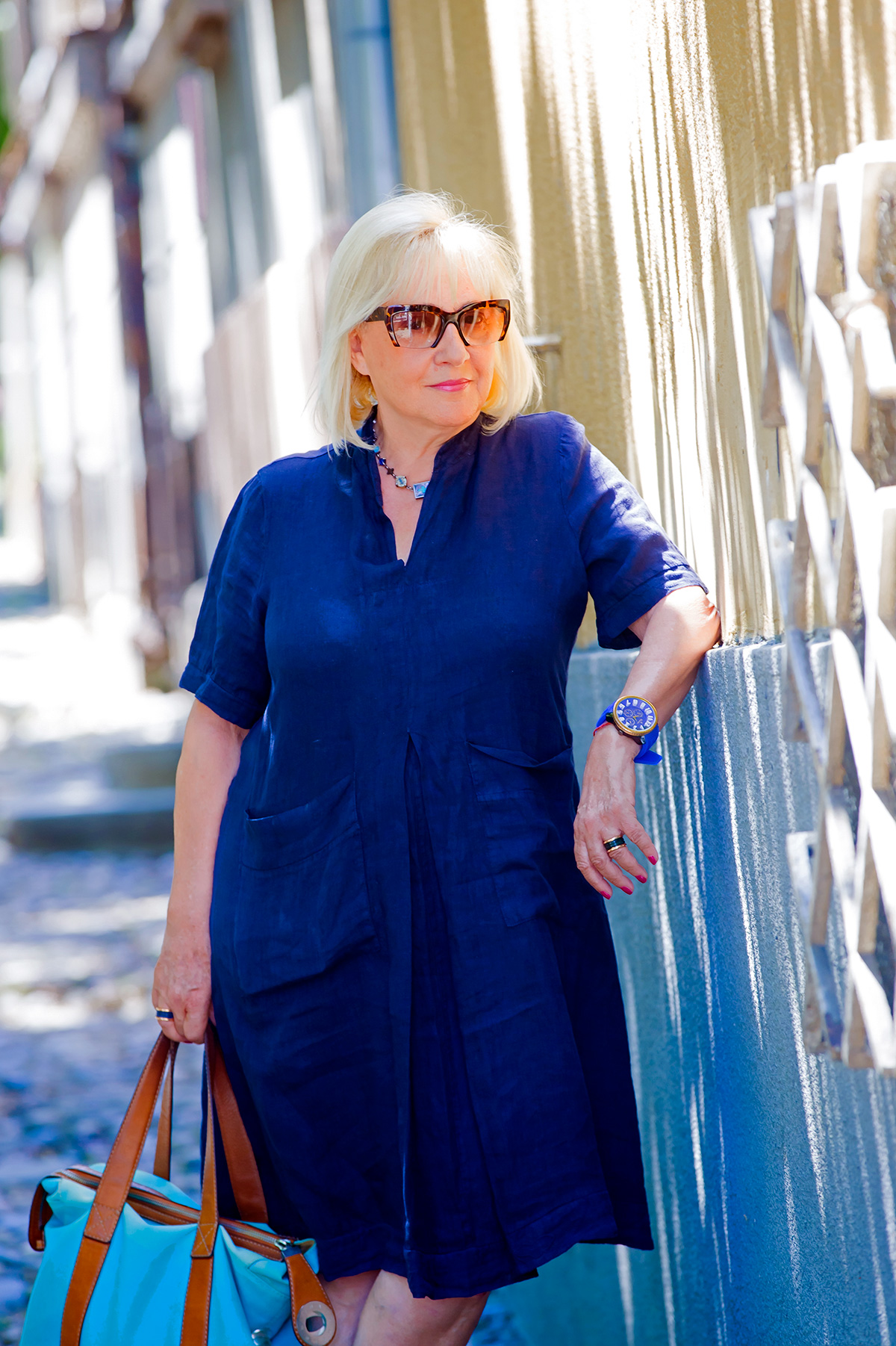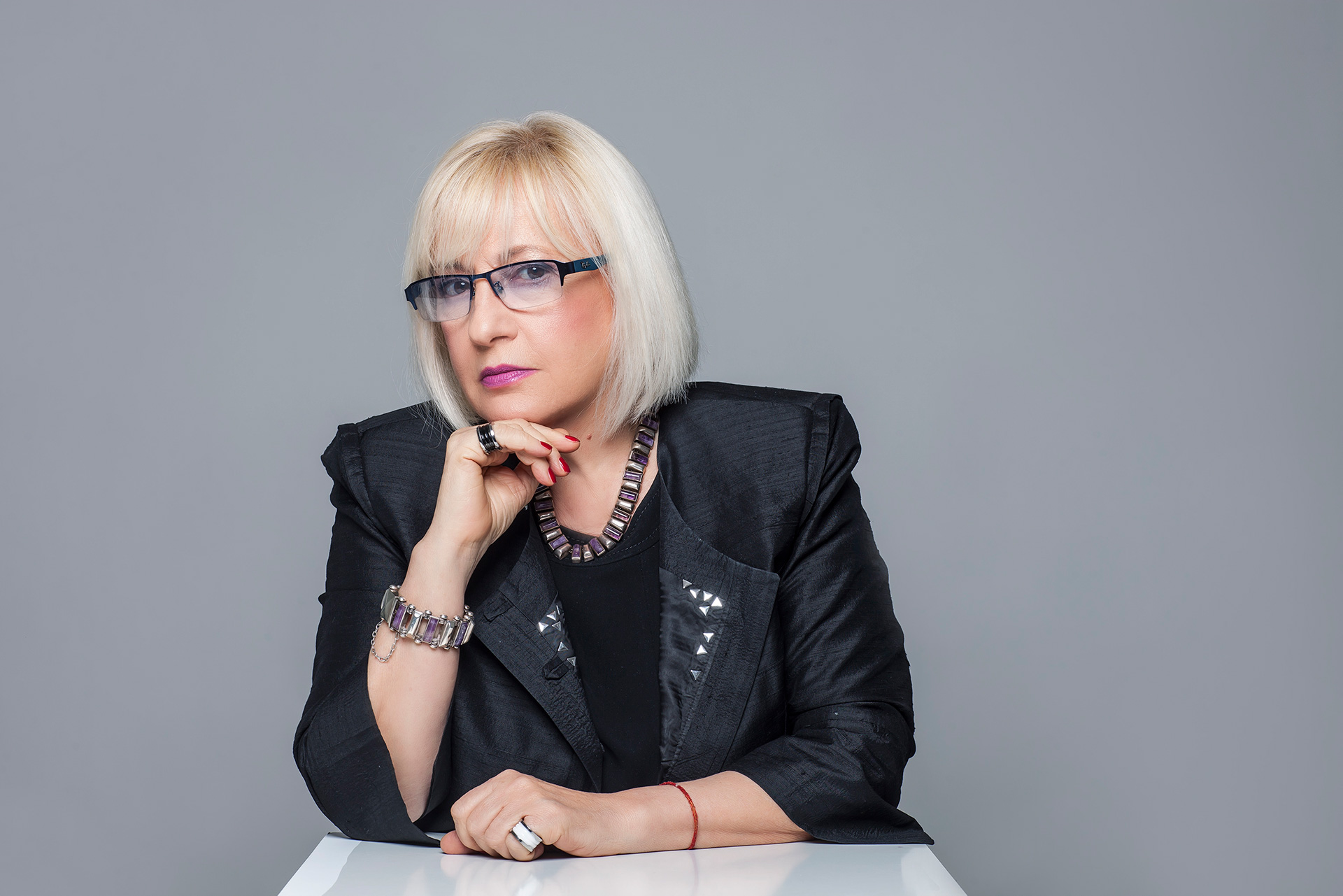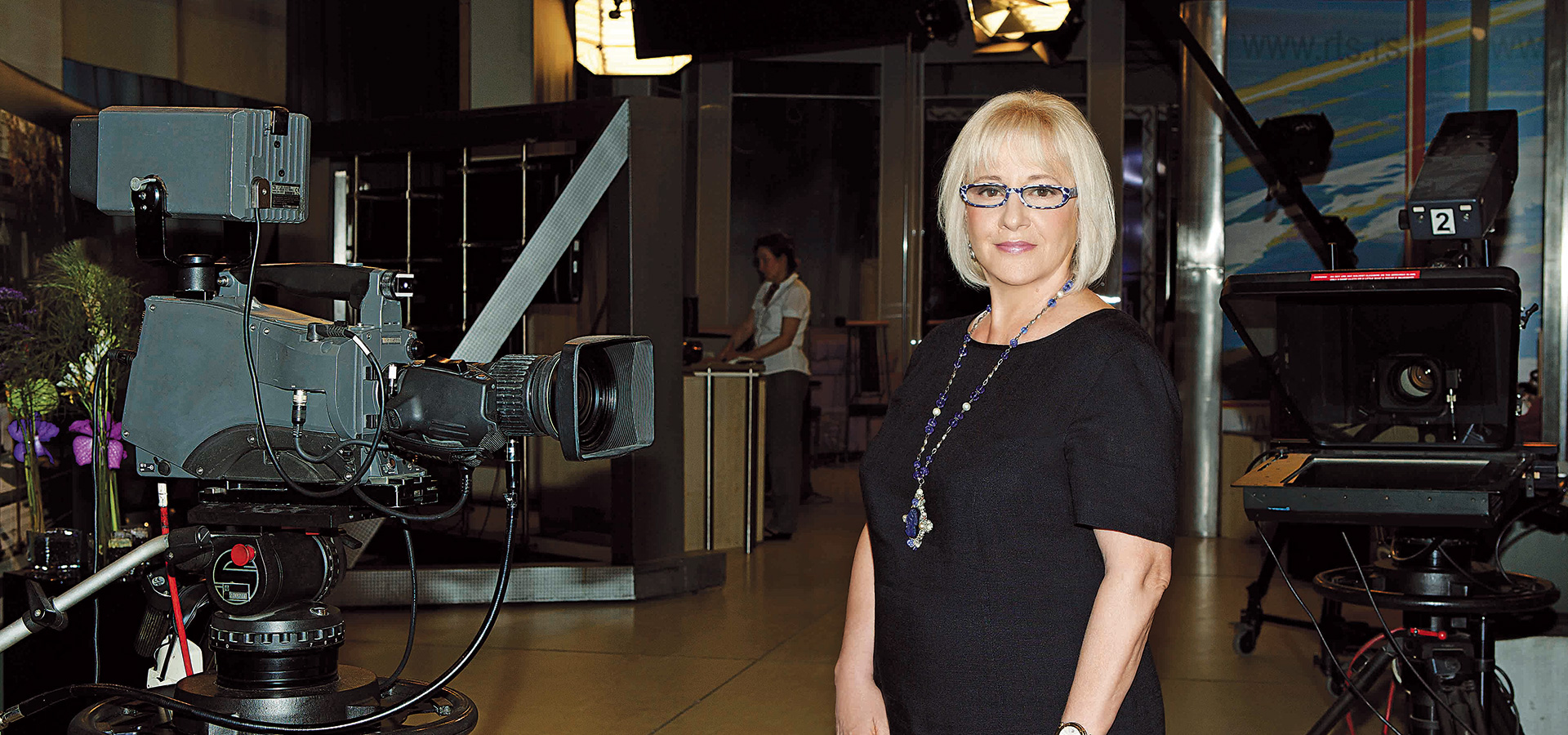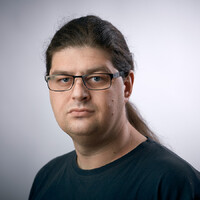Mira Adanja Polak: I learned to always follow my instincts
We know her as the journalist who always brings us exclusives, the reporter who finds a way where others see dead-ends and the person who brings the world to Serbia. Mira Adanja Polak unstoppably continues to chase new stories and follows her calling as a journalist with a lot of enthusiasm.
Seeing how you see things in a specific and perceptive way as a journalist, what is your view of Belgrade from the past, compared to today and all the changes it went through?
M.A.P: I never thought of my city in an analytical and clinical way. I live here and I’ve always reacted to what bothered me or was sorry that some things weren’t done better or planned better.
I’ve never had the ambitions to meddle in things I don’t understand and that are outside my area of expertise. I like beauty and functionality and I’ve had the opportunity to put my tastes to the test by travelling and observing cities around the world.
I do remember that every time my plane was landing and the visibility was good, I would peek through the window and look at the cities from above. That’s how I’ve always looked at Belgrade as well and I experience it from the air. I often see well-planned cities which are like well-composed paintings. Then I draw the conclusion that someone sat down and spent a lot of time and thought planning it all with skill and expertise. No matter how many years have passed since those plans had been made, there was always a thread woven through all the changes made throughout the years. My only fear had always been of people who are ignorant without realizing it. I always reacted badly to disjointedness and rushed projects, but all I can do is take not of it.
Belgrade has been through a lot and it shows. I have been privileged enough that my family had lived in Dorcol for centuries. All families only a few blocks away from each other and the luck that my house hadn’t been torn down and made it through a lot of events. I’m lucky enough that the name of my street – Cara Dusana – hasn’t changed and I’ve lived in the same address for the last 50 years. I’m happy that the Bajloni marketplace is still there and that I had the honor of meeting Madam Bajloni personally in Lisbon. I will always prefer the old-town style of architecture and thick walls and I was happy with the news that I’ll be able to put out laundry to dry on my terrace because it’s facing the interior yard.
What was it like growing up in Belgrade?
M.A.P: I grew up with my brother and sister following the family rules. We didn’t have any rules we adhered to that didn’t come from our family. We grew up like all other kids, with chores to do and the rule that we should never have a poor grade at the end of the school year that would disrupt our summer plans. We were never under any pressure to be the best or special. We had gatherings at home or friends’ homes, but that wasn’t common. I remember my father once didn’t let me go to some ‘party’ because I had to prepare for an exam. When I complained how it was just ‘one evening’ he told me that it wasn’t about the one evening, but the five days before that evening and five days after which I would spend thinking about it and distracted from the exam. I didn’t go.
I still remember this today, when I’m preparing for an important interview. I have to be dedicated and keep the interviewee in my thoughts, to be in it...
Spending time with friends in Belgrade during your studying days, topics of conversation, values that were predominant...are they different from what you later experienced?
M.A.P: I have to disappoint you...our topics, at least with my friends, were boys and how to understand them because they’re so different. How to get tickets for theatre and concerts and our values were to be the perfect friend to rely on. Wealth and possessions weren’t really the focus. In my circles, the important things were skill, education and ethics. We have enough but never too much. My father was the doctor Prof. Dr. Solomon Adanja and I grew up thinking he was all-mighty because he treated people who boasted about it. For me idolizing doctors stuck to adulthood and to this day I see doctors as life-savers.
I knew that I had paintings by famous artists in the room I shared with my brother and sister and my mother, who was an art historian, would always quiz us on the names of the painters and show us reproductions of famous art while we guessed the authors. We had an open house and many friends would come and visit. The entire history of our country passed through our house and we as children watched the states emerge and disappear. Someone always ailed from something and came to seek advice from my father. In our home I learned and saw everything live.
Are you still friends with people you studied with? Have you worked professionally with any of them?
M.A.P: Almost everyone who went to school with me have left the country. One person I still see is Gordana Kuic, author of several novels and TV shows. I often talk to her, but we don’t compare because you can’t compare or reenact some things. I have never worked professionally with anyone I knew in private.
You have traveled and ‘seen the world’. What is it that sets our Belgrade apart compared to other global metropolises?
M.A.P: To quote people who visited us from other countries...they say we are hospitable, that we are passionate, that they have a great time and like to come. Some things they don’t understand and often they see us as something to do on the weekend.
Those who stay, start having complaints. They are scared and attracted to this nightlife that they’ve never experienced anywhere before. They are just now discovering us because they hadn’t heard anything good before. They think we are chaotic, not punctual and that we’re just now learning about order. They don’t understand a lot of things.
Is there a part of Belgrade you especially love and why? What memories do you have with that area?
M.A.P: I love Dorcol and especially lower Dorcol that’s being discovered all over again. I love the parts that aren’t being invasively constructed up without a concept or plan. I love a ‘messy’ marketplace much more than a neat one. I like to find my favorite seller at the same stand she’s always been. I love the cafe near my house where I can visit over and over and read the newspaper there. I don’t like it when I go to my favorite dry-cleaner's and find a pizzeria there instead and no one knows what happened.

Why did you decide to pursue journalism?
M.A.P: It wasn’t a decision as much as something that just happened. During a storm I mistakenly left my flight in Manila and lost my flight to Belgrade when I was coming back from visiting a relative in Sydney, Australia. I think back then we didn’t have diplomatic relations with Thailand. Still, I was immediately assigned a personal officer and hotel. While waiting for the next flight which wasn’t until 3 days later, I was shown the beauties of Manila and its surroundings. I offered an article on that to Politika and it was featured on two pages. They told me it was good and it was then I realized that this is what I wanted to do. I wrote for everyone – there isn’t a newspaper that I haven’t worked with and I came to television as a professional journalist 47 years ago...I can hardly believe it. And since then, every day has been the same as the last.
Oh, that’s right...as a 13 years old girl, I chased celebrities for autographs. Zubin Mehta I met the first time he was in Belgrade. I liked to go wherever something was happening, to see what’s up. But in school I never showed any interest in journalism and I didn’t stand out.
I always thought the same thing I do today, which is that I can change the world. That’s why I continue to record and show, so that someone might notice and apply some of it.
When you were starting out, competition was very fierce. Do you see that as an advantage or flaw?
M.A.P: I never felt that competition personally. I walked a path of my own, chasing my own star. If you ask me which star, I don’t even know what to say. I get an idea into my head and I have to realize it. I learned to follow my instinct, to not compare myself to others or reach for titles...and I don’t like to judge people. Imagine if I had to tell someone they aren’t suited to their work. I still have an idolizing image of my profession, but if I didn’t, I wouldn’t be able to do it.

You were ready to finance your own stories. Where did such courage come from and would you be prepared to make the same sacrifices today?
M.A.P: It’s all about choice. I want the story and it takes long to make it happen through regular channels...that’s when I take matters into my own hands. If I had waited, I wouldn’t have gotten it done. The administration is such that it slows down everything you try to do, and I want what I want. If an opportunity arises, I have to take it immediately. My quick reactions often got me what I wanted. But, I’ve also waited for some things for a long time. Not everything is always simple and clear.
You have the reputation of someone with strong connections in all places, including Belgrade’s Jewish community. How did you make all your contact and what did they mean for your work?
M.A.P: My contact came from recognizing the right people. I have an uncanny sense of potential for people who might not matter at their present moment, but in time they will. I don’t know if this comes from my profession as a psychologist, or the fact that I never let anything pass without notice. I also don’t know if it matters that I am Jewish, but I get asked that a lot, thinking that maybe that’s where my insight is coming from. I think it’s all about dedication and the way you see things and choose what matters.
What’s interesting is that you very rarely ‘followed the crowd’ in your profession. To the contrary, you’ve always carved your own path that others would follow, before anyone was even aware that there was a story there. How do you pull that off?
M.A.P: Looking ahead is important, following the paper trail, a lot of reading and listening to wise people that usually go unheard. It’s important to hear, but people often just chase without listening. I did many things prematurely and today they seem like they were recorded yesterday.
Everything has its own course and events follow certain rules. Believe me that there aren’t fundamentally that many surprises, except when one of my grandchildren disappears for half an hour and you don’t know where he is. Usually he’s digging a hole in the forbidden part of the yard. He knows he shouldn’t, but he does it anyway. They say he takes after me.
You’ve worked with countless world leaders, state officials, influential people. Who stands out in your memory?
M.A.P. I’d like to highlight Brzezinski, Rockefeller, Raisa Gorbacheva, Kissinger, but above all others Jovanka Broz, because I’m getting ready to write something I haven’t so far. There’s so much that we don’t know because we were simply never told.
You’ve spoken to a long list of famous and influential people. Are there any interesting stories? Do great people have something in common?
M.A.P: What great people have in common is that they are simple, measured, well-behaved and value their conversation partner. They seem so ordinary and calm, but if they realize you are really interested in what they do, they will give you immense time and attention.
Back in the day, you were on the list of passengers for a space-shuttle flight. What can you tell us about that?
M.A.P: I was issued the number 10 for that flight to the moon because I had done some reports...you’ve reminded me of that. This was more of a symbolic value for me, trust me I’ll never use it. I’m too occupied by the life we lead down here.
Mira Adanja Polak still works full-steam ahead today. What are your plans for the future? Can anything stop you?
M.A.P: I don’t have plans. All I know is that on Thursday I have a crew and I can’t be late and that I have another show waiting that needs to be finished on time and published on the website.
Seeing how you’re continuing onward with incredible enthusiasm, what dreams are you still chasing?
M.A.P: When have I not had enthusiasm? I don’t know what that would be like...working on something I don’t love and don’t want to do...I never experienced that until now.




 6 ℃
6 ℃



